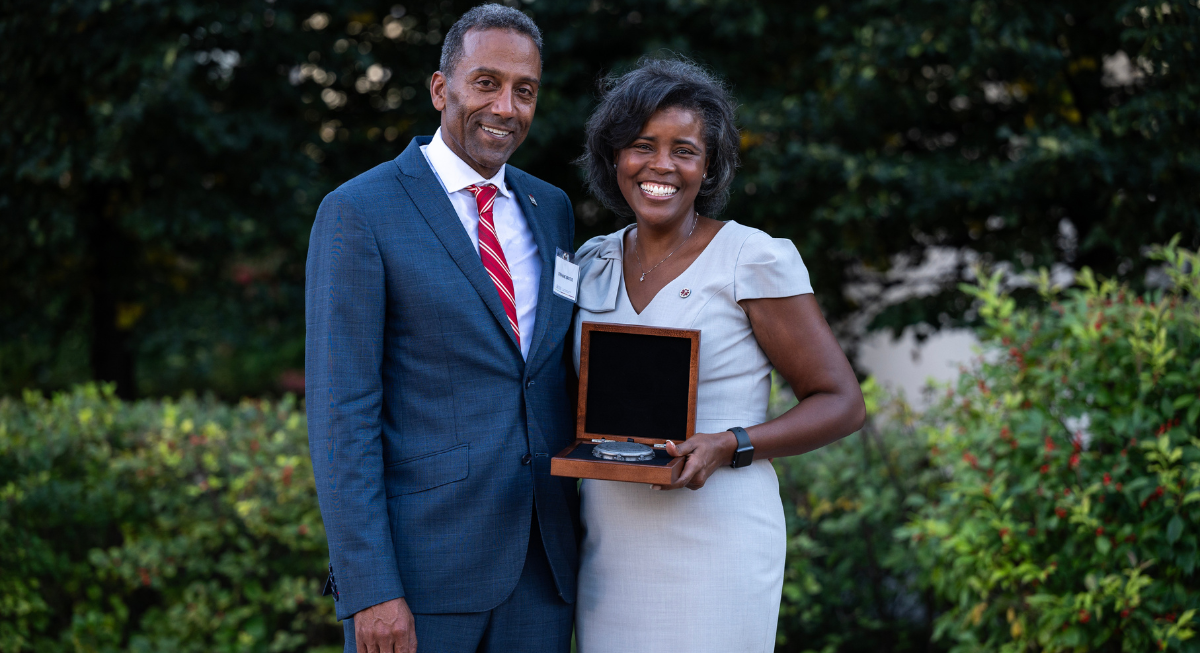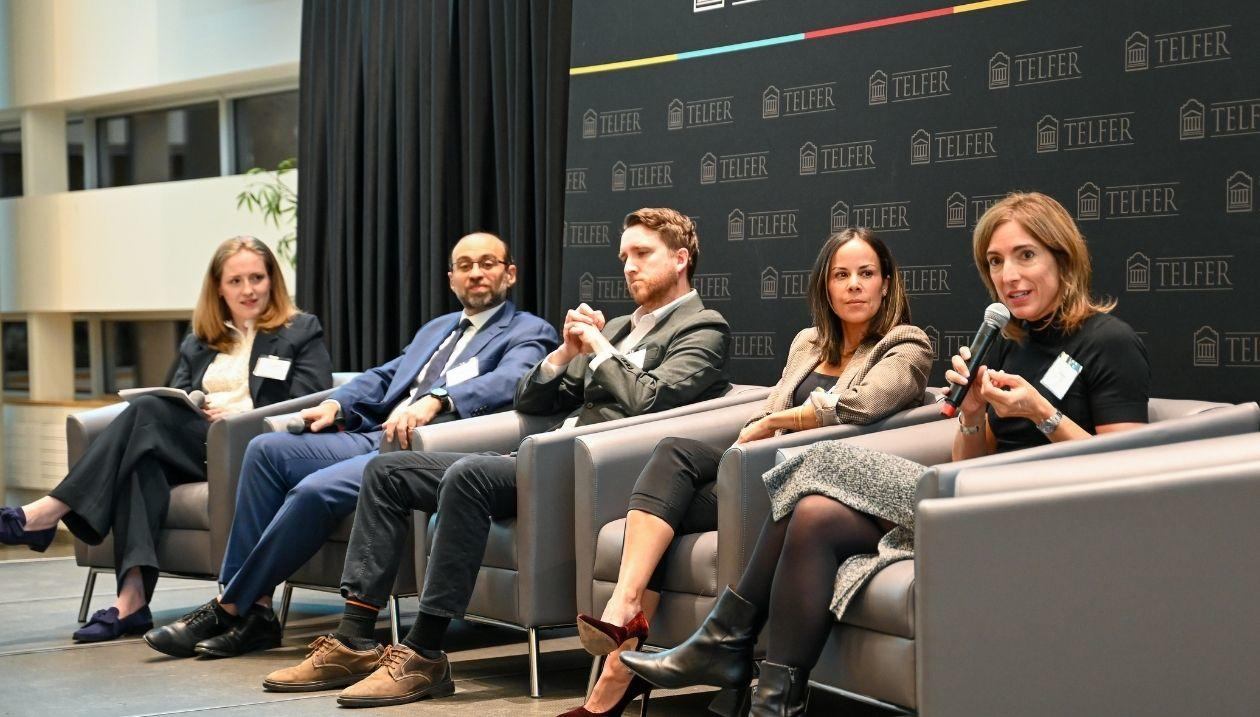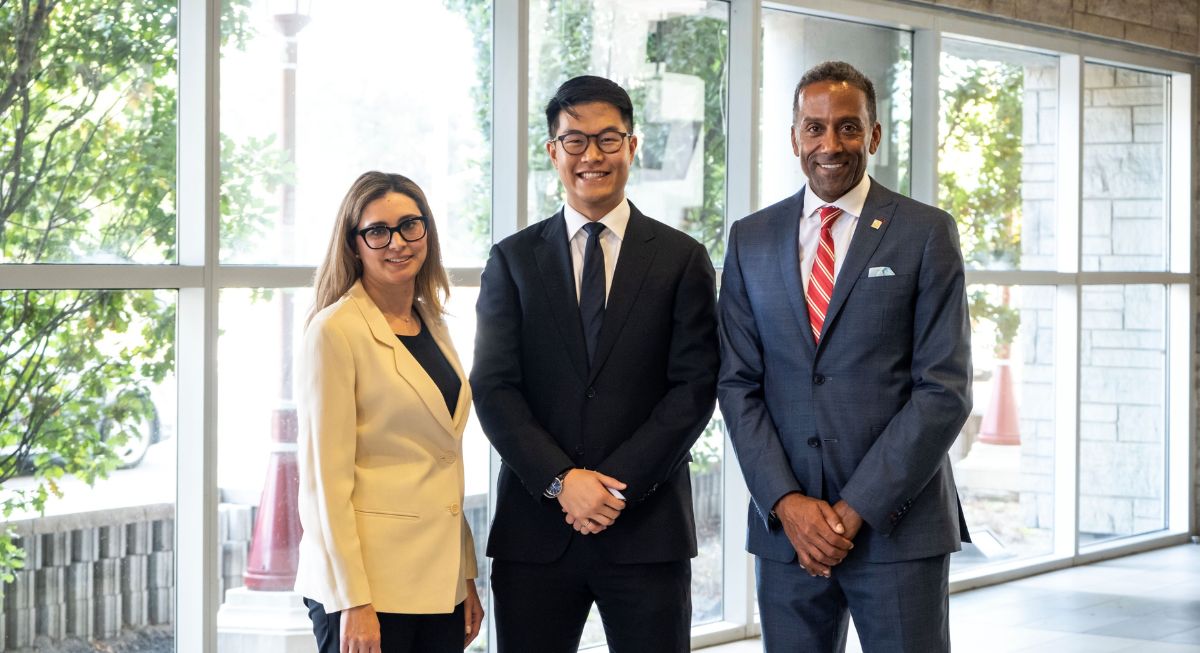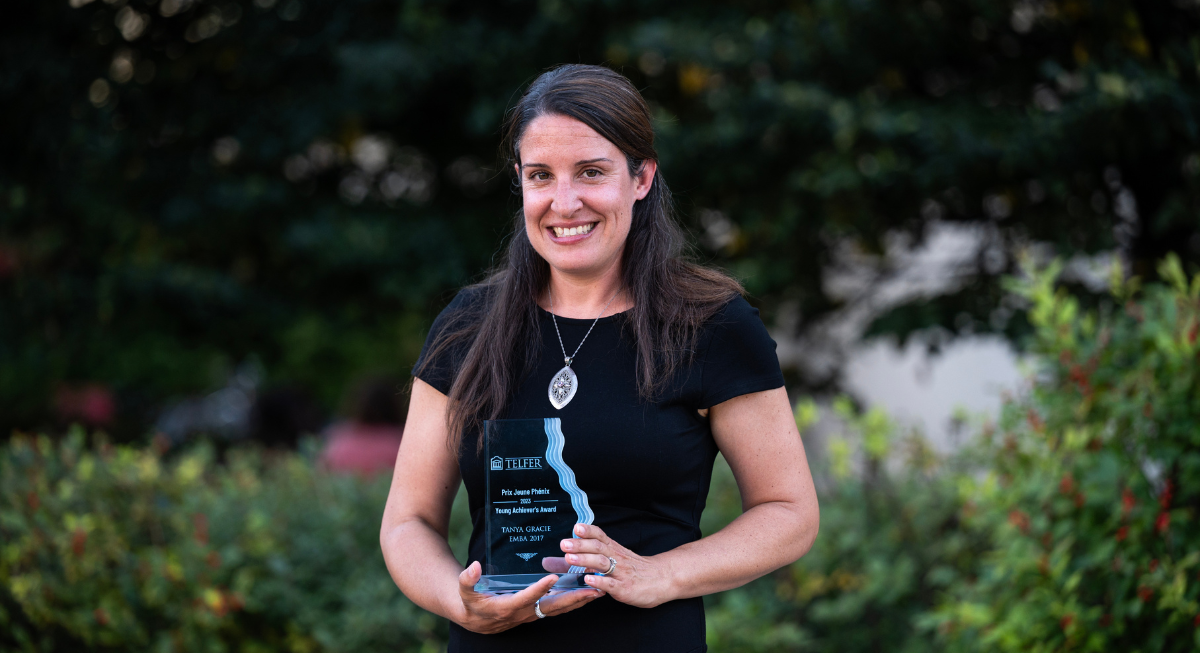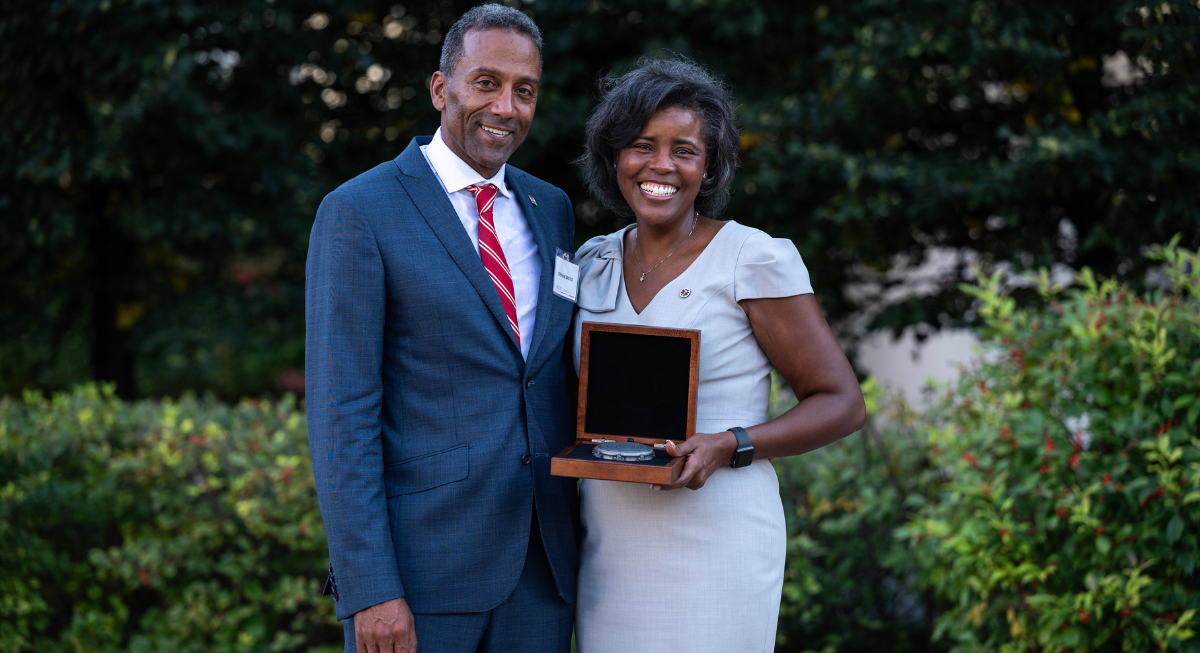
Jacqueline Rigg (BCom’90) is a multi-faceted executive with a 35-year track record of success spanning various business sectors and roles. She is a University of Ottawa alumna who is a philanthropist passionate about giving back. Rigg has been making meaningful, real change in the world of workplace equity, diversity, and inclusion for more than three decades.
Now retired, Rigg enjoyed a stellar career featuring roles of CEO at the Association of Professional Executives of the Public Service of Canada (APEX), Head of HR Operations at National Defence working with 24,000+ employees across six regions, and VP of HR at the Canada Border Services Agency (CBSA) supporting 14,000+ employees.

Combining talent for working in private, public, and not-for-profit environments in finance, marketing, and communications roles, Rigg previously worked as an executive at Bell Canada, leading a $1.5B marketing campaign.
Focused on building a better future for all, Rigg has made significant inroads for workplace equity: she co-founded the Black Women’s Executive Network at the Public Service of Canada, held the roles of Chair of the National Employment Equity and Diversity Advisory Committee, CBSA Agency Champion for Visible Minorities, and is a member of the Black Executive Network.
For her contributions, Jacqueline has received the recognition of Diversity and Equity Champion at the Canada Border Services Agency and has been named a Distinguished Fellow at the Canada School of Public Service, amongst other awards and accolades.
Today, Rigg gives back through community work and philanthropy, and serves as a Board Member for the Ottawa Grace Manor. This year, the Telfer School of Management named Jacqueline Rigg an Executive-in-Residence at Telfer Executive Programs, with a focus on fostering inclusivity and equity.
Rigg is an exemplary alumna of the School who has achieved exceptional success in her career and is continuing to make a significant difference not only in the Ottawa community but provincially and federally. Thus it is only right to add the R. Trudeau Medal, the highest honour our remarkable alumni receive at the School, to Jacqueline Rigg’s list of accolades. And this palpable passion for making the world a better place transcends through generations — just last year, Jacqueline’s son Tyson Rigg (BCom’16) received the Young Achiever Award of the Year from Telfer for his contributions to financial literacy across different populations.
The Criticality of Clarity in the Equity, Diversity and Inclusion (EDI) of the Workplace
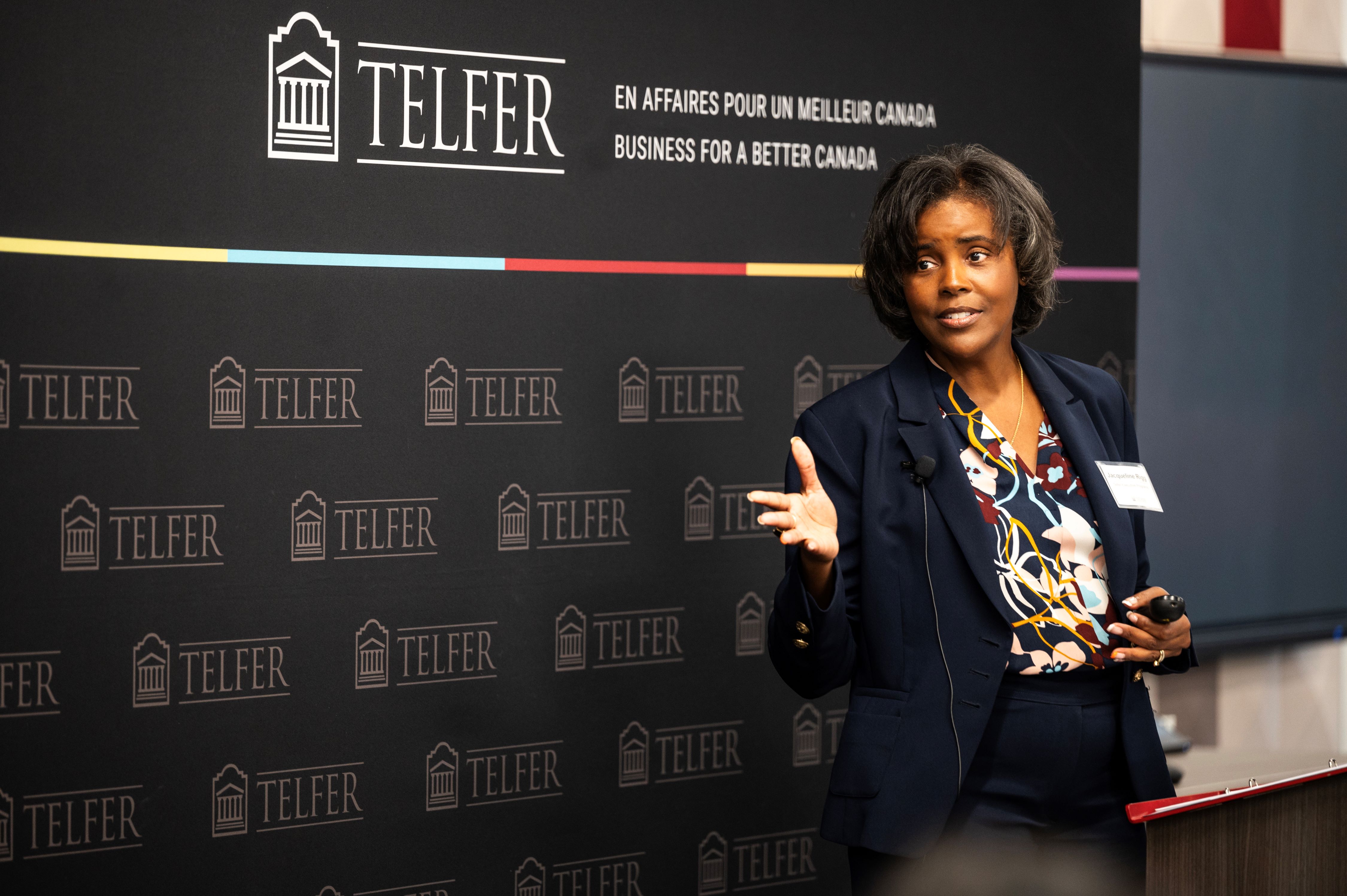
As an Executive-in-Residence, Jacqueline brings her life’s work to improve DEI at Telfer. At the core of the initiative lies a simple yet profound truth: words matter.” Language matters. If the goal is to be diverse and inclusive, organizations have to shift from equity labels to pride and individuality instead.” One of Jacqueline’s goals is to create clarity in DEI: “Clarity is understanding we don’t need labels — we need fairness and equal opportunity,” she says in an interview.
That’s because an equity label is still a label that creates division. Instead of an “Us vs. Them” dichotomy, workplaces should focus on creating a community by fostering the celebration of each individual and their personality, no matter their race, creed, orientation, or any other label. Why should only the four Employment Equity Act groups self-identify when starting a new position, instead of everyone? Why should a person of colour receive a label attached to them when people who are not visible minorities simply exist and work without any identifiers?
In fact, the Employment Equity Act from almost 30 years ago is hardly relevant to the landscape of today. The minority groups it mentions are women, Aboriginal peoples, persons with disabilities, and members of visible minorities. In her work, Jacqueline saw time and time again just how many organizations are still stuck in fulfilling quotas while entirely missing the point of real equal opportunity and fairness to everyone. Taking into account the four designated equity groups in a now-antiquated Equity Act, Rigg urges organizations to identify against a modern expanded lexicon of identities that better reflect the Canadian landscape.
However, not all hope is lost: throughout the years in the space, Rigg has seen positive evolution and progress, and harbours cautious optimism for an equal opportunity future in the public service, where everyone is asked to self-identify, not only the EE groups.
The idea of pride and individuality centers on knowing and accepting yourself while showing the same empathy and compassion to others. “Only through recognizing that our humanity is enough, and that being human is the only commonality we need, can we move forward,” says Jacqueline.
Changing systems requires changing the culture
Although frameworks may change, Jacqueline knows that true change lies in changing the system and the culture which supports it, and this takes time. Changing a culture is a long-term game that starts with how you think about people.
The meaningful work often begins with grassroots work by a few brave individuals: when Rigg co-founded the Black Women’s Network in the Public Service, there were only three Black women who were Assistant Deputy Ministers in the Public Service at that time, including Jacqueline. What started as a small group working off the corner of their desks in the evenings after work is now a formally established network that has been embedded in the Black Executive Network that regularly meets with the head of the public service to discuss better inclusion. There is progress and there is hope.
“I was the only one that looked like me”
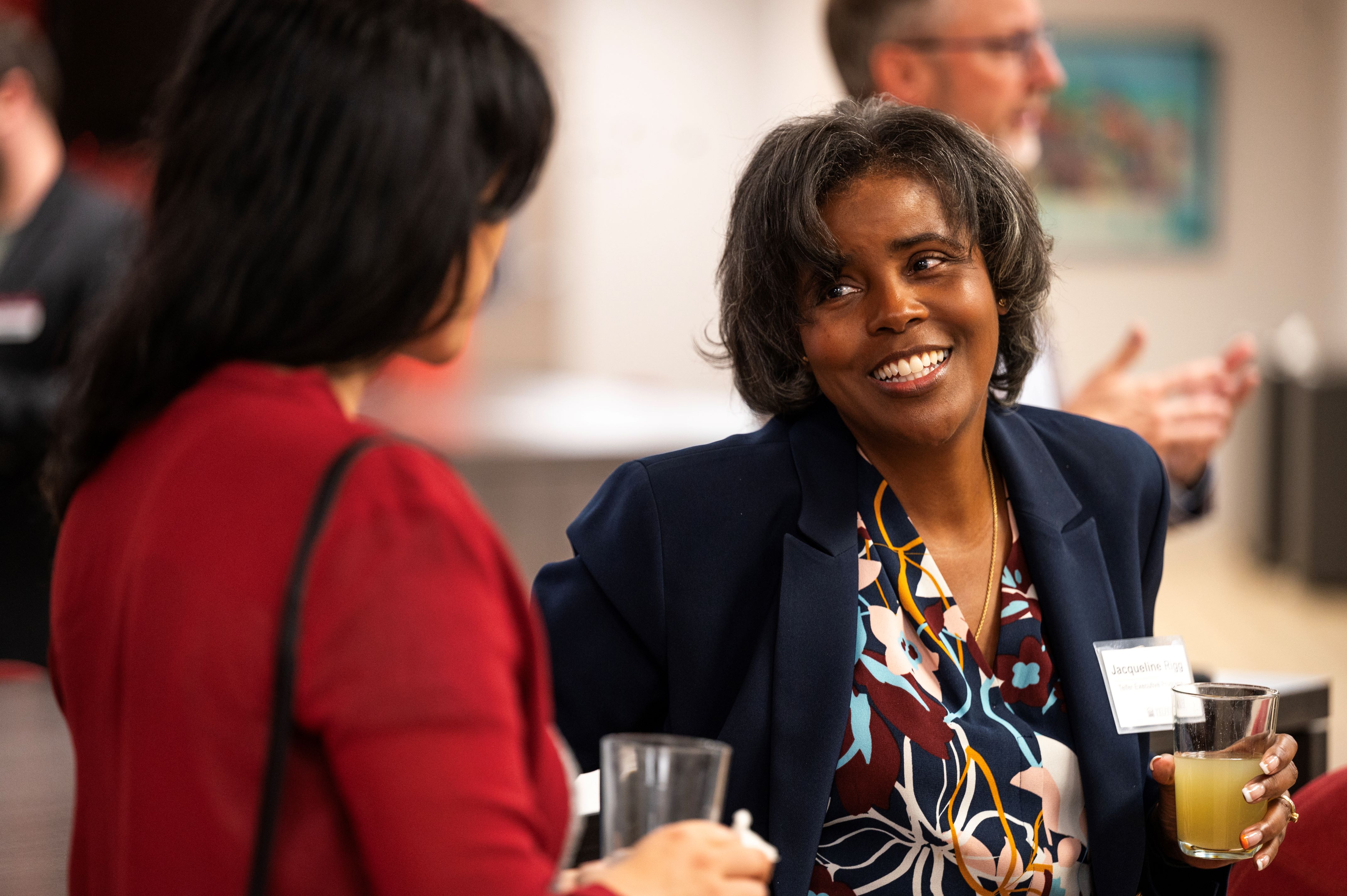
Representation matters. Seeing yourself in leaders and role models matters. But what happens when time and time again you don’t see yourself in a classroom, a work environment, or a board room? What happens when you’re the only one that looks like you? For many years, this was the case for Jacqueline.
“In an immigrant family, you are always told to keep your head down and work really hard to get just a little bit,” recalls Rigg about her childhood. “I spent my career always working hard. While my work probably took a longer trajectory because I am a Black woman, I was fortunate and I got into the leadership ranks. I was the only one that looked like me.”
This was the case when Rigg was in school and she and her sisters were one of the very few Black children in the School. Then it was at the leadership table. When applying for promotions, Rigg never saw a person of colour on the board of assessors. That was the final straw when Jacqueline replayed all the experiences of her life and said, “I am willing to sit on the boards for hiring.” She remembers a candidate telling her later that seeing a Black woman as her assessor made a world of difference. Hearing the real impact propelled Rigg to keep going, to pay close attention to the statistics around visible minorities and to look around the table.
When she became a senior leader at CBSA, someone sent her a photo featuring the leaders in uniform — everyone was white. Rigg took the photograph and went to the Deputy of the Department, slid the picture across the table and said: “There is something wrong here.” The Deputy said: “You are right.” Within a year and a half, multiple women and people of colour joined the ranks and Jacqueline was not the only visible minority and woman out of all the VPs anymore.
“What sparked me was being the only one who looked like me at the most important stages of my life and thinking that this isn’t right,” adds Rigg. “I know brilliant people who deserve to be here. It’s about opportunity and sponsors, about installing fairness and economic viability for all.” When we move away from the “Us vs. Them” division, we start to recognize that we can all help each other. Jacqueline recalls her sponsor, a former Olympian John Ossowski, a white man, who helped her move forward in her career and lent helpful advice over the years. “I never thought someone like that would help me and he did,” says Rigg.
Building a Legacy: Leadership Advice from Jacqueline Rigg

While Jacqueline was achieving greatness in her career and breaking down barriers for racialized groups in public service, she was raising a family at the same time, which came with its own set of challenges. When Rigg first got married to her husband, a Stationary Engineer at the Ottawa Paramedics, and had two boys, the family lived in Ottawa. When the sons were toddlers, they moved to Toronto.
“When Tyson was in Grade 1, he came in contact with a racist teacher,” recalls Rigg. After doing well on all his assignments, Tyson’s report card showed a different story with all Cs and Ds. When Jacqueline asked the school about it, the teacher said the young boy makes her laugh every day and he looks like he is built to be an athlete. This did not sit well with Rigg, who values academics in the family and has been instilling this into the kids from a young age. Tyson graduated on the Dean’s list. “Had I let that teacher have a say, my son’s life could be different. Other visible minority parents could have believed the teacher’s stereotypes and thought their child wasn’t smart enough,” says Rigg. It’s precisely this type of pigeonholing young Black boys into sports that often excludes them from a real shot at academics, pursuing their education, and making a difference in areas that are not athletics. Today, Tyson Rigg, CFA, PFP, QAFP, CIM, is a Senior Investment Counsellor and Portfolio Manager at BMO Private Investment Counsel Inc. and the recipient of the Young Achiever Award from Telfer in 2022, who is making strides in financial literacy for all, especially for visible minority families.
“Don’t ever let anybody limit you in what you can do,” says Rigg when asked about her advice for current Telfer students. “You can do anything you put your mind to.” Even if you find something challenging at first, Jacqueline’s advice is to stick with it and eventually, you will conquer it. It may be easier to coast with an easier undertaking but completing a challenge is rewarding because you will have done it all on your own.
Continuing Education and its Lifelong Benefits
Jacqueline’s own strive for academics has been lifelong. She looks back on her experience at uOttawa fondly: “I am so proud of my BCom from Telfer. My learning experience was fantastic and I still remember the camaraderie, the school pride, and the friendship.”

The uOttawa degree was just the start of Rigg’s education as she is a strong advocate of continuing education. Believing that if you stop learning, you fail, she went on to complete an Executive Leadership Program Certification at Queen’s University, a Leadership and Management Development at the World Customs Organization and the Executive Leadership Development Program at the Canada School of Public Service (CSPS).
“Intrinsically, I always felt the best way to influence equality was to be a good leader,” says Jacqueline. Today, she continues to learn by always reading and bringing in amazing speakers from different communities to the Executive Program at CSPS in her role as a Distinguished Fellow. “Staying current to me is the best currency,” says Rigg. “If you’re not staying current and educated, you don’t have a strong enough voice to comment on anything.”
Jacqueline Rigg eventually moved back to Ottawa with her husband and two sons who now have their own families. In her retirement, Rigg continues her work with the Telfer School, in the community, and is always learning. We are proud to call Jacqueline an alumna and can’t wait to see what she will do next.
Editor’s note: The article was created with direct support and insights from Jacqueline Rigg.
